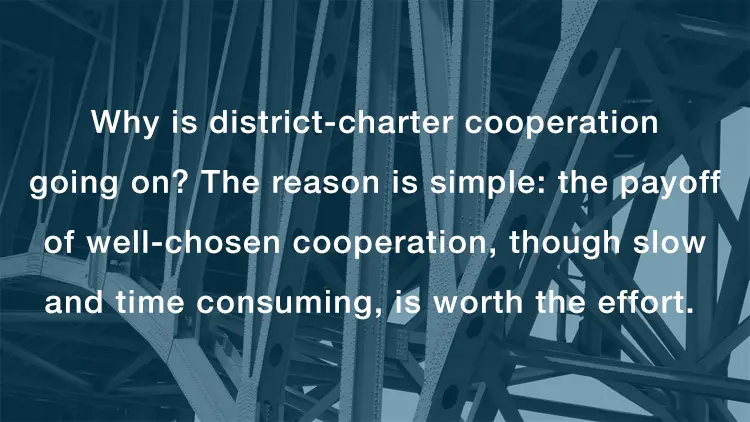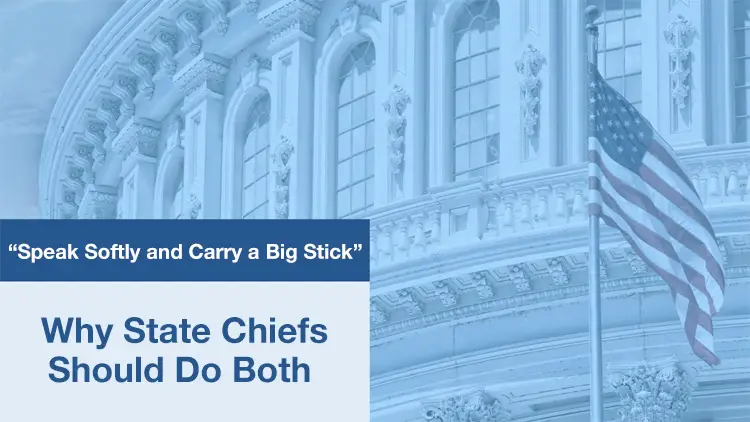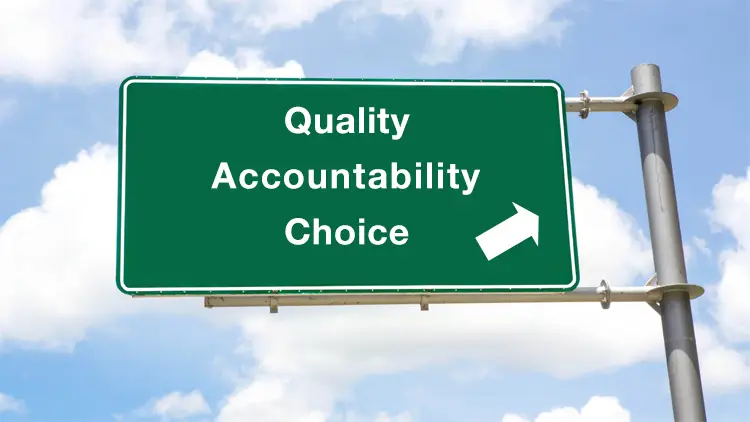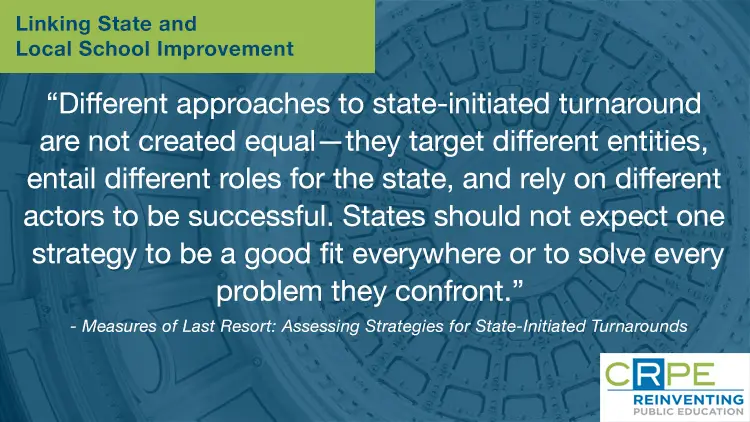Taking Betsy DeVos Up on What She Has Said
The newly confirmed education secretary Betsy DeVos has been a very controversial nominee. Many have raised serious concerns about her experience and views. Given the intensity of the debate, it will take time before education reformers who opposed her can contemplate working with her. But it will eventually need to happen. It’s hard to know […]
Necessity, Not Nicety: What We’ve Learned About District-Charter Alliances

In some of the cities known as ground zero for noisy fights about charter schools, quiet partnerships are underway between district and charter leaders. In New York City and Newark, district educators are meeting with their charter school counterparts to share successful teaching strategies. In Chicago, charter and district leaders have worked out ways to […]
A Better Future for Rural Communities Starts at the Schoolhouse

Donald Trump’s voters in rural areas and small towns made a point: they were left behind while a lot of the country made economic progress and they want that to change. It doesn’t matter whether you consider these voters adorable or deplorable. They have expressed a grievance in the most democratic of ways—through their votes. […]
Six Unifying Education Policy Ideas for 2017

Polarization was the theme of 2016, and we’d be kidding ourselves to think that will be much different in 2017. Still, there has rarely been more need for new ideas that people can begin to come together around, especially in education. Here are six to start us off. What are yours? 1. High expectations […]
Will DeVos Learn From Detroit’s School Choice Mistakes?
With Donald Trump’s recent nomination of Betsy DeVos for secretary of education, people in the education world have picked sides faster than in a Super Bowl office pool. A common subject of debate, raised by Doug Harris in a New York Times op-ed, is the education track record in Ms. DeVos’s home state of Michigan. […]
Collaboration and the Calendar Invite: Building Trust through the Dreaded Meeting
Animosity between school districts and charter schools has been the norm since the nation’s first public charter school opened in 1992. In some cities, however, these deeply divided factions are now finding ways to come together to increase equitable access to schools; in a few cities, these partnerships have even helped to improve some of […]
“Speak Softly and Carry a Big Stick”: Why State Chiefs Should Do Both

In the ongoing debate about federal and state roles in K–12 public education, states got a leg up with the passage of the Every Student Succeeds Act (ESSA). It renounces the strong regulatory role that the federal government had come to play, in favor of a return to state control. Now that the federal government […]
Will the New Administration Love School Choice to Death?

My education policy friends were frustrated that education didn’t get more air time during the presidential campaign season, but I was relieved. I cringed every time I heard candidate Donald Trump and his surrogates talk about education. All I could think of was the analysis I did eight years ago of George W. Bush’s school […]
Incomplete Reform in Baltimore: An Interview with CRPE research director Betheny Gross

Five years ago, Baltimore City Public Schools seemed on the brink of a breakthrough. By almost all accounts, the district-led portfolio system—traditional and charter school options, all authorized and managed by City Schools’ central office—was working. But today, progress appears to have stalled. CRPE research director Betheny Gross and analyst Ashley Jochim researched Baltimore to […]
The “Noble Lie” of Evidence-Based Turnaround Strategies

The Every Student Succeeds Act abandons the prescriptive approach to school improvement embraced by both the No Child Left Behind Act and the Obama Administration’s flexibility waivers. Instead, states are empowered to craft their own “evidence-based” strategies to turn around struggling schools and districts. But what does an evidence-based turnaround strategy look like? CRPE recently […]


